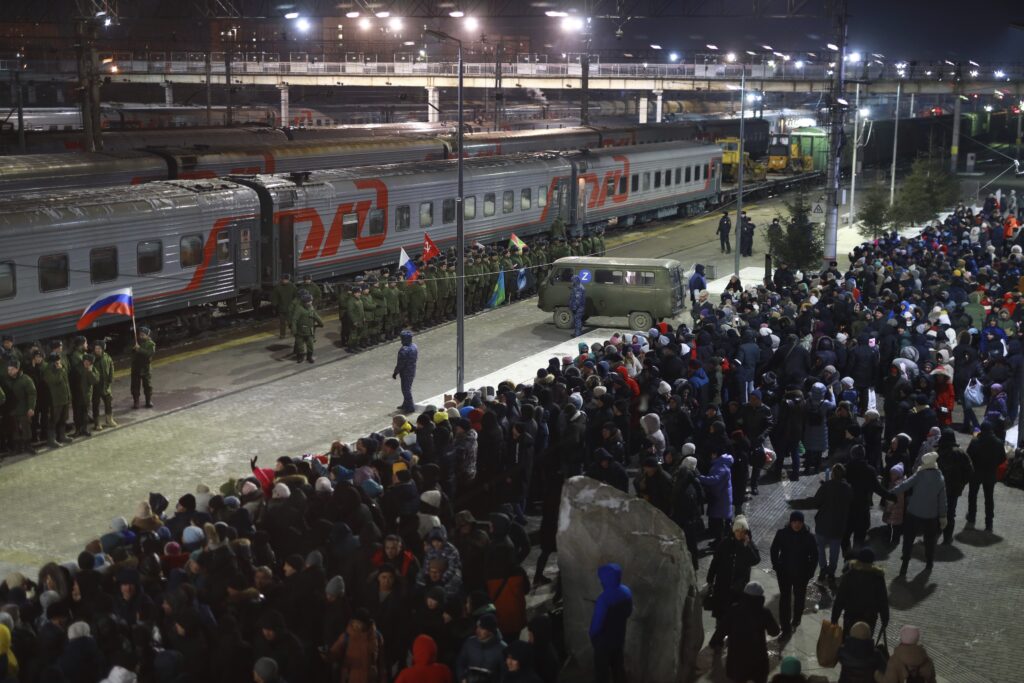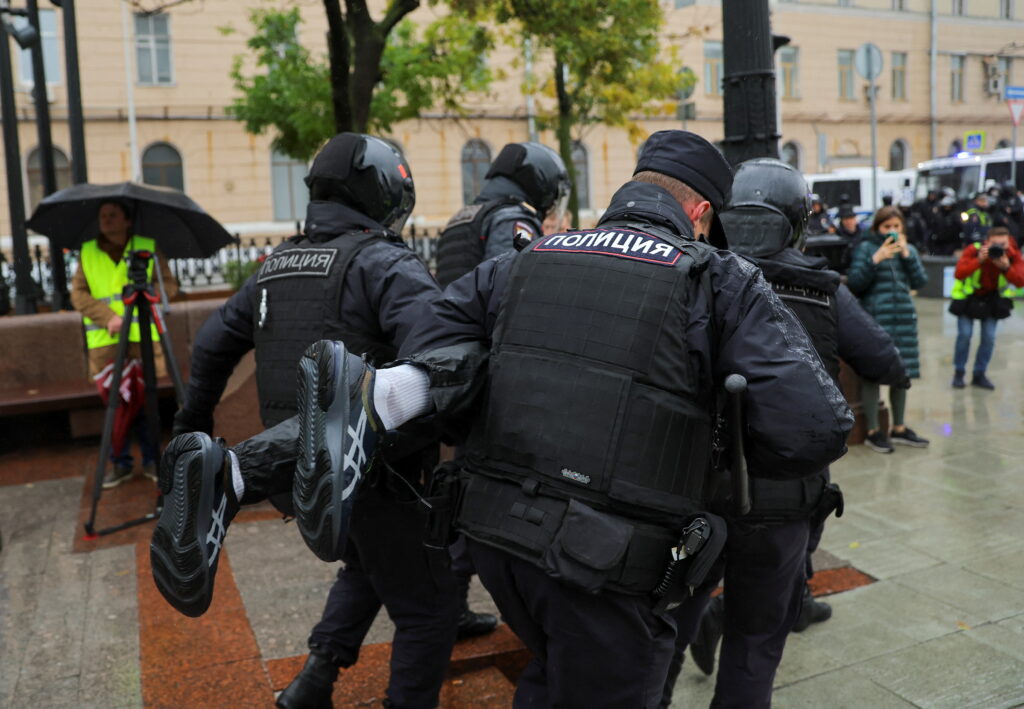Opinion polls by the Levada Centre and other sociologists in recent months have recorded a significant number of opponents of the vote on constitutional amendments: their number amounted to 34% in March, 31% in April and 32% in May. However, not all intended to take part in the voting: only 17% of Russians planned to vote no. At the time of the last poll, conducted amid preliminary voting, 18% of respondents planned to vote against the amendments. It is quite obvious why those against the amendments refrain from voting: they are certain they cannot influence the course of events. In this respect, this plebiscite is no different from recent federal elections, including the 2018 Russian presidential election. This is what ensured a landslide victory for the authorities. Even electoral statistician Sergey Shpilkin estimates the real share of ‘for’ votes at 65%. In other words, vote-rigging adjusted the results but did not determine the outcome.
The number of opponents of the amendments can be roughly estimated as one-third of the total adult population. One of the most typical determinants of the attitude to the amendments is age. It is impossible to determine the exact line, but clearly the schism divides those who spent their youth in the 21st century and older Russians. The symbols of the incumbent government have recently taken their final shape. They refer to the country’s Soviet and, somewhat less frequently, pre-revolutionary past: territory enlargement in Tsarist times, victory in the Great Patriotic War, 20th-century status as an empire. This rhetoric seems more and more distant and alien to Russians born at the end of the 20th century.
Figure 1: Share of Russians planning to participate in the vote (June 2020,%)

The youth are among the most dissatisfied
It was obvious from the outset that the key amendment was the resetting of term limits for President Vladimir Putin. The Levada Centre survey shows a significant correlation between the rejection of the ‘reset’ amendment and a negative attitude to the entire package of amendments. Putin’s Press Secretary Dmitry Peskov announced that the result was ‘a triumphant referendum on trust in President Putin’. However, only the results among the older generation can be regarded as triumphant. Russians aged 18−39 did not unanimously vote for the amendments; it is primarily the older generation who delivered the victory.
There is a correlation between approval/ disapproval of the amendments and voters’ view of the situation in the country; 76% of those who were against the amendments also believed Russia was heading in the wrong direction. Long-term data from Levada Centre surveys in recent years record an increase in discontent among young Russians. The most recent survey, from June, shows that most Russians under 30 believe the country is heading in the wrong direction (59%). As few as 15% of those 65 and older are so dissatisfied.
Figure 2: Russians who agree with the statement ‘The country is heading in the right direction’ (aggregated data by year, %)

The young are perhaps the most diverse group of opponents of the vote. Speaking of young people’s opinions, it is important not to simply focus on the range of birth dates. The generational difference depends not so much on age, but institutions and cultural foundations for one’s formative years. For a long time, young people could not be considered a protest stratum at all. The proportion of supporters of the authorities was traditionally higher among young people. Youth emerged as a politically active group in 2017 during Navalny-led rallies. The announcement of the pension reform in 2018 somewhat unexpectedly raised protest moods in society, although the level of such sentiment among those who had not yet turned thirty was slightly below the Russian average. After all, younger people care less about pensions.
However, protests have another important underpinning (see attitudes toward the Moscow rallies in summer 2019). Russians don’t protest only to prevent changes; they also express their general dissatisfaction with the situation in the country this way. Ultimately, this undermines trust in the authorities among all age groups. At the same time, there is a feeling that the authorities no longer perceive youth as their allies. The current authorities are pursuing ideals which ignore values that are attractive to many young people, namely a focus on personal success and self-fulfilment.
In March 2020, we asked respondents ‘What do you dislike about Vladimir Putin?’ Young people more often believed that ‘he is not respected in my circles and is not able to take the lead’ (17%). As few as 7%-9% in other age groups shared this opinion. Age difference turns into political distance: the president is losing his popularity as an opinion leader not only among schoolchildren and students, as was frequently mentioned during the 2017−2018 protests, but also among those in their thirties. This means that very soon the age brackets of people disappointed with the president may widen. This disappointment could carry protest potential. Long-term protest sentiments identified by the Levada Centre show that for two years now, a quarter of respondents have been ready to protest following a decline in their living standards. The latest survey, from May, reveals a greater willingness to protest among young people, at 36%. In March, this indicator was at 26%. (The May survey was conducted by phone, so one should be careful when comparing results. Still, a difference of 10 percentage points among young respondents compared to March is enough to be noteworthy.)
Trust and fears
The young are not the only socio-demographic group that tends to view the amendments negatively. Unsurprisingly, those with higher incomes, higher education, higher professional status and residents of big cities are more sceptical of them. However, the differences are small: these groups were 5−8 percentage points more opposed to the amendments than the national average. Socio-demographic parameters in Russia are less indicative of political behaviour than in Western countries. Attitudes and social expectations are more important.
A March 2020 survey reveals a low level of trust in information from state-owned media outlets among respondents who opposed the amendments. It also points to expectations of increased political pressure by the authorities. Take the 18−39 age range, within which 90% of Russians use the Internet daily. Thus we can rule out the influence of the age factor on respondents’ responses. Those who reject the amendments are much less likely to trust television (23%), which is partially compensated by using other sources of news (social media or personal acquaintances). Those in favour of the amendments trust television much more than other sources of information (53%), even at a young age (under 40).
Figure 3: Which sources of information do you trust most when it comes to news coverage in the country and abroad? (% of respondents, March 2020)

Disapproval of the amendments stems from fear of even greater ‘tightening of the screws’. In March 2020, 36% of respondents who opposed the amendments and 15% of those in favour of them strongly feared arbitrary rule and lawless actions by the authorities, while 28% and 17% respectively, feared the return of mass repressions. It is noteworthy that during his speech in defence of arrested Khabarovsk Krai Governor Sergey Furgal, LDPR leader Vladimir Zhirinovsky linked the adoption of the amendments to increased political pressure: ‘You needed the Constitution, we gave you the Constitution. And you’re handcuffing us!’ The context of his speech implies that public support for the amendments should have provided protection against prosecution. The authorities now have even greater impunity. Perhaps the oratorical experience of the LDPR leader made him choose such rhetoric in his speech; the parallels with prison vans could have had a greater impact on those who were against the amendments.
A study from June this year indicates that fears of political changes come with a sense of a decline in living standards, seen in the last few months of the pandemic. More than half of those who oppose the amendments noted a deterioration in their families’ living standards in spring (61%). This indicator is much lower among those in favour of the amendments, at 25%. This is respondents’ subjective assessment of their financial situation. These figures do not mean greater prosperity for Russians supporting the amendments. In fact, their income is lower: in June, 28% of amendment opponents had a monthly income of more than 50,000 roubles, compared to 20% among supporters. This is due to a specific social status of amendment supporters: pensioners, who constitute nearly half of them (44%), suffered declines in their incomes or job losses to a lesser extent. Their subjective consumption level remained largely unchanged. Not only are better-off respondents more acutely aware of the changes, they are also more concerned about the future. Changes due to the pandemic and a protracted decline in real incomes are extra reasons for a negative reaction to the authorities’ actions.
One of the integration points used by the incumbent authorities is labelling the 1990s ‘the time of trouble’. In the emerging myth, the 1990s play the role of the initial chaos, and are contrasted with imperial greatness. The late 20th century can be regarded as a reckless or liberated time. The attitude toward this period can be associated with the perception of recent events. In March, the Levada Centre asked several questions related to that period. The perception of the past can be divided into two dimensions: the public, dominated by the official myth of the danger of this period for the history of Russia, and the private, associated with ideas about individual, everyday aspects of life. Speaking of the public dimension, a negative attitude to the 1990s prevails among both amendment supporters and opponents. However, opponents more often think it has become more difficult to organise their lives, i.e. to earn money, do business, support their families and buy a home. The attitude to the future and past is associated with the way respondents perceive current events. Differences could be expected between those who were alive at that time and those who learned about it from the media and their parents’ accounts. However, the study does not reveal significant age differences in relation to events from 30 years ago; young people have a slightly better attitude to those days. It can be assumed that it is precisely dissatisfaction with recent developments which makes Russians look for positive aspects of the recent past.
Figure 4: It has become more difficult to … compared to the 1990s (% respondents, March 2020)

The result of the vote was determined by mobilisation of those who usually vote: middle-aged and elderly Russians (40 and older); pensioners, workers and the unemployed — categories who are more dependent on the state; residents of small and medium-sized towns and villages. Compared to the March Levada survey, the number in favour of the constitutional amendments increased to the greatest extent among these groups. Opponents are a more diverse group, united by outrage over the reset of Putin’s presidential terms. The amendments annoy the young, the well-off and those afraid of a worsening political and economic situation.
Despite seemingly convincing vote results, tensions in the country are increasing, manifested by an increase in protest moods among young people and in some of the regions.









